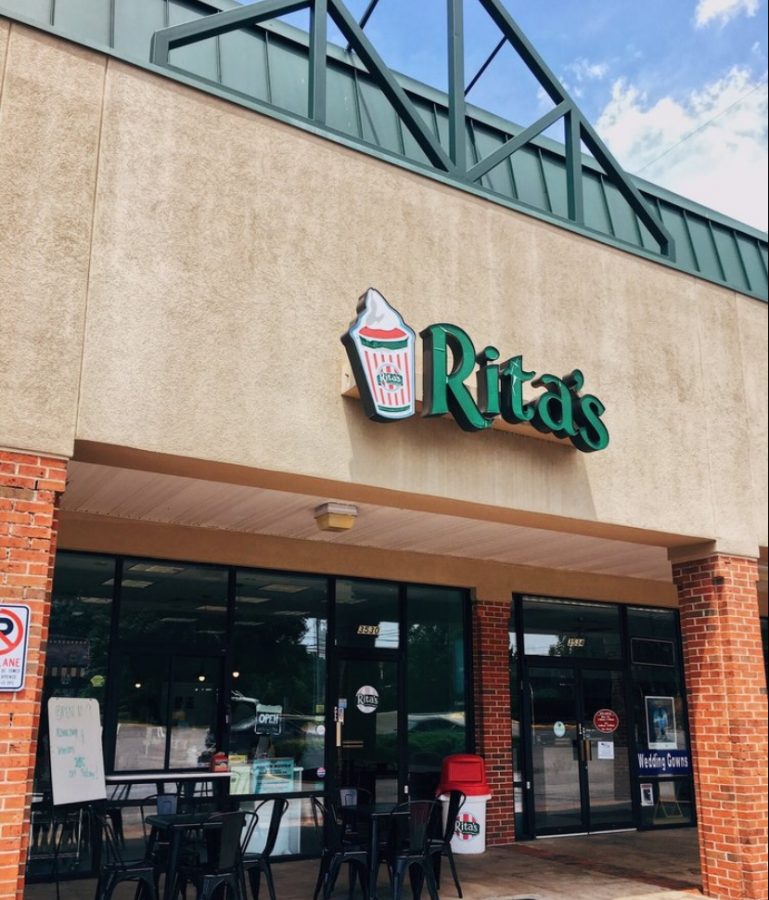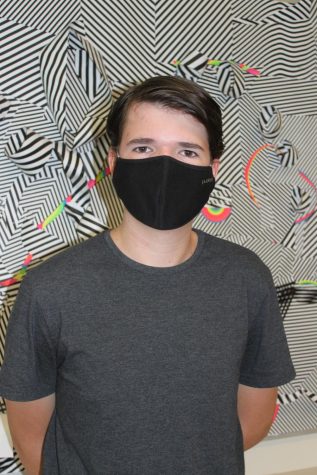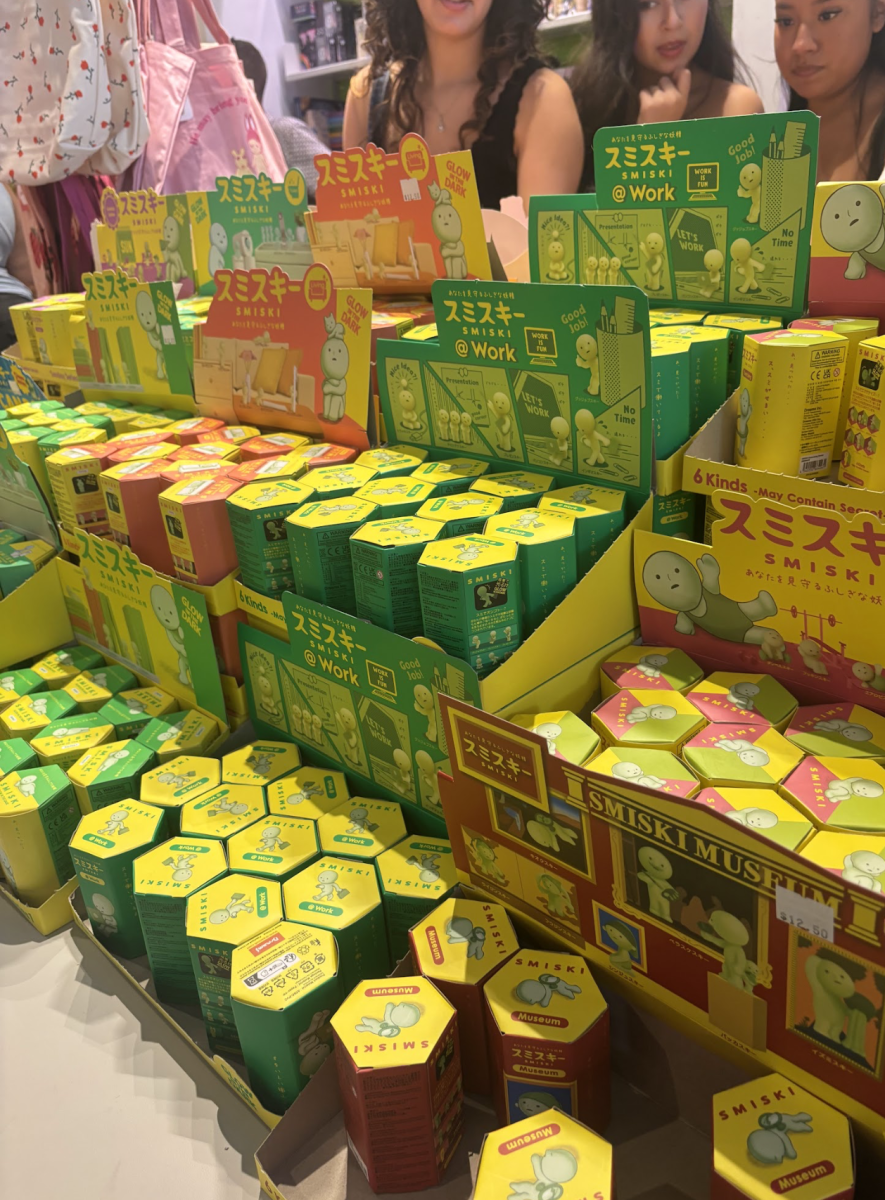Despite Pandemic and Virtual Learning, Students Still Report to Work
The Brookhaven Rita’s Italian Ice restaurant is in full force, even within a pandemic.
September 14, 2020
From working at home to wearing a mask—COVID-19 has transformed workplaces and school environments around the country. In the case of Chamblee, virtual learning has also had an impact on students with part-time jobs, who face the additional challenge of coping with a transformed workplace and a new school environment.
With school moving online, some Chamblee students have found it easier to work at their jobs.
In the case of Ethan Santucci, a junior who works at the Heritage Golf Links golf course, working is easier to balance with virtual school due to increased time.
“It makes my life so much easier. I can work Wednesdays. I can have time after school to do homework before going to work in the afternoon,” said Santucci. “All of those transition times between classes and having to go to and from school—that adds up. If I can have all that time, [there is] more time for me to work.”
Hannah Hancock, a senior who works at the front desk of Ninth Inning Baseball, also finds that the shorter school days make her job easier.
“[I]t is easier to have a job because the hours we are in school now are shorter than […] if we had a regular year, which allows me to get more hours [in] at work,” said Hancock.
On the other hand, virtual school has made time management more difficult for some working students. Gabe Smith, a junior who works as a lifeguard at Hampton Hall Swim and Tennis Club, finds that virtual school has made it harder to work.
“Even though school is virtual, working has not become easier. Although my schedule technically is more open due to a shortened school schedule, all of my classes are giving me massive amounts of work, and teachers often ask us to do specific tasks at times outside of the school day,” said Smith. “I almost never have enough time to take shifts between schoolwork and soccer. I would possibly think differently if I was a freshman [or] sophomore with a smaller workload, or if I didn’t play soccer.”
Ava Peters, a senior who works at Rita’s Italian Ice, also finds that the amount of schoolwork and the lack of structure of virtual school makes having a job harder.
“Working has become much harder with virtual learning. I have come to notice that school has started to consume every hour of my day in some way or another. There is less structure, so it is much harder for me to lay out a certain time to get things done,” said Peters. “I am now only working one day a week [as opposed to three to four days a week] in order to focus on school and getting my assignments done because there seems to be so much [more] than before.”
In addition to the effects virtual learning has had on the jobs of students, the broader COVID-19 pandemic has also caused overarching changes: several workplace changes include temporary closures, mask-wearing requirements, customer conflicts, social distancing procedures, and new sanitation procedures.
For Smith, his workplace was closed for a month, and new sanitation procedures were put in place.
“COVID-19 originally kept the pool closed for about a month. This meant me and my coworkers had no income for the first month of the summer season. It then created multiple tasks that required extra time, such as sanitizing the bathrooms or lifeguard chairs [and] tubes. I also had several guards I had worked with get tested positive for COVID-19,” said Smith
After the pool reopened, there was a mask requirement for employees, but no mask requirement for customers.
“Overall, COVID-19 made the job more difficult and even made me feel unsafe at times. Even though I was required to wear a mask, none of the patrons at the pool would wear masks. This often led to me feeling unsafe at the pool, regardless of being around fellow guards or patrons,” said Smith.
Hancock also does not have a mask requirement at her workplace.
“I am not required to wear a mask at work, but I choose to anyway because it feels a little hypocritical when I have to tell people they can’t stay and watch the lesson because of COVID-19 when I don’t even have a mask on,” said Hancock.
In contrast, Peters’s workplace has a mask requirement for both employees and customers.
“We serve food, so obviously it has had a very big impact. We are required to wear masks 24/7. We only let customers order inside if they have masks on, and no one is allowed to linger in the store once they have ordered,” said Peters.
People without masks are instead served through a serving window, which has led to anger from some customers.
“We have a serving window which we use for those without masks or if there is already a party inside, and sometimes customers will get angry that we will not let them inside to cut the line since they don’t have a mask on,” said Peters. “However, I have come to notice that most people in Chamblee [and] Brookhaven are actually very polite when it comes to asking them to put on a mask.”
In addition to mask requirements, some restaurants have added plexiglass to separate employees from customers. Saray Gonzales, a senior who works at Poké Bar Chamblee, says that these new additions make her feel safer at her job.
“We are required to wear masks, and we have plexiglass that completely separates us from the customers, which makes us all feel really safe, especially since a lot of customers don’t wear masks,” said Gonzales. “It’s really hard for us to hear what the customers are saying due to the plexiglass, so we have labels on the glass and the customers have to point to what they would like in their bowls. However, a lot of customers don’t do this, which makes our jobs a lot harder when we have to ask them to point five times.”
Some workplaces have also closed their bathrooms.
“[O]ur bathroom is closed off to customers because we don’t have enough supplies [and] time to disinfect it daily, and some customers have gone as far as contacting our manager and corporate because we didn’t let them use the bathrooms,” said Peters.
Students like Peters concur: with the bombardment of changes, challenges, and complications that COVID-19 has brought, there is an added level of uncertainty about the future of working during this pandemic. Despite this, not all students are deterred.
“COVID-19 made everything much more difficult in terms of work. It also made me think a lot about my safety in the work environment, and I was occasionally worried about my well-being,” said Smith. “However, it was still important to be making money, and it was a risk I was willing to take.”











